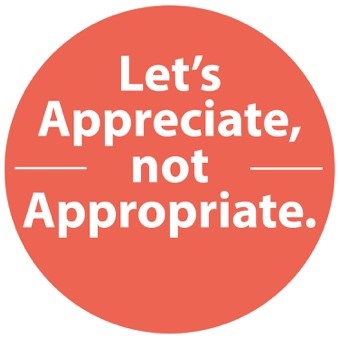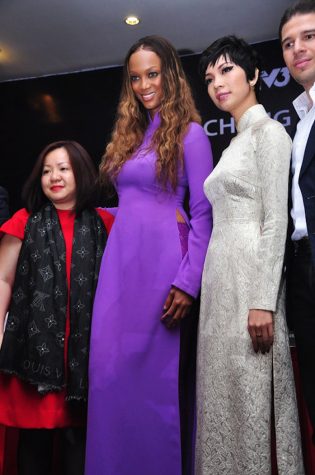Mis-Appropriation

November 18, 2020
Cultural appropriation has been around for a long time and sometimes it’s even normalized. Cultural appropriation is “the unacknowledged or inappropriate adoption of the customs, practices, ideas, etc. of one people or society by members of another and typically more dominant people or society.”
Cultural appropriation is something that has been seen in today’s society quite often. To illustrate, during Halloween, there are many people who may wear Hawaiian “costumes” or Native American “costumes.” The issue with this is that the cultural traditions and original meanings of these outfits are lost and removed when worn as a costume. These “costumes” that are created can sometimes be sexualized which is seen as disrespectful and harms the original meaning behind the outfit. However, the purpose of this article isn’t to make you feel guilty if you’ve culturally appropriated something, but to educate you on this topic so that you will not do it again. Sometimes, people aren’t aware that something that they are wearing or have is considered cultural appropriation, which is why we all need to educate ourselves on this topic more.

When Kacey Musgraves, a country singer, wore an áo dài without pants and accompanied it with a headpiece, that had nothing to do with it, she sexualizes the traditional Vietnamese outfit, áo dài because it’s a dress that is supposed to be worn with pants. Usually the áo dài is worn as a uniform by civil servants, teachers, and is used for special occasions like weddings and religious ceremonies. This doesn’t mean that you can’t wear an áo dài if you’re not of Vietnamese descent, but rather to wear it respectfully. It isn’t simply for fashion and to look “trendy,” there is a deep history and meaning behind most cultural garments.

Now, Cultural appreciation is when someone seeks to learn about or explore a different culture, where they learn and listen to gain an understanding of it. For instance, when Tyra Banks wore an áo dài properly and with respect during an event in Vietnam. Therefore, if you’re going to wear a garment from a different culture, PLEASE do research before putting it on.
Someone’s culture isn’t a costume and it shouldn’t be worn in a way that is disrespectful to the culture. Wearing traditional clothing disrespectfully takes away the traditional meanings behind the garment and can create stereotypes. Cultural appropriation isn’t limited to just clothing, but can apply to decor, furniture, hairstyles, customs, and practices as well! I highly urge everyone reading this to do research and educate yourself before wearing a garment from another culture!

